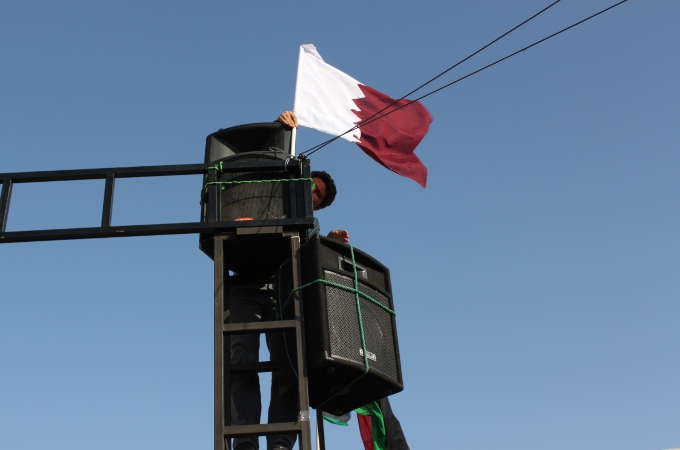
Al Jazeera English
Qatar Petroleum is considering investing in "traditional and unconventional gas and oil," Kaabi said.
The Qatari company owns a controlling stake in the Golden Pass LNG terminal in Texas. Exxon and ConocoPhillips own smaller stakes.
Kaabi said that it is planned to make a final decision on these investments "by the end of the year, or in January."
Qatar intends to withdraw from the Organization of Petroleum Exporting Countries in January 2019
According to the data of secondary sources given in the OPEC report, oil production in Qatar in November was 609 thousand barrels per day, having increased by 14 thousand bpd compared to the previous month. Qatar accounts for less than 2% of OPEC’s total oil production, which totaled 32.9 million bpd last month.
At the same time, Qatar is the world's largest exporter of liquefied natural gas.
According to Kaabi, the US bill to ban cartels of oil producers and exporters (No Oil Producing and Exporting Cartels Act, NOPEC) was one of the reasons Qatar left OPEC.
On Sunday, Qatar Petroleum also announced that it had entered into an agreement with the Italian oil company Eni to acquire 35% in a project involving three offshore oil fields in the Gulf of Mexico.
The company is in talks with international oil companies on a project to expand LNG production in Qatar, including Eni, Kaabi said. Among other companies already operating in Qatar are Exxon Mobil Corp, Total, Royal Dutch Shell.
Qatar Petroleum intends to independently finance an increase in LNG production. Previously, the company used borrowed funds to finance up to 70% of project costs.
Qatar wants by 2025 to increase LNG production by 43% compared with the current level.
By 2025, Qatar Petroleum will increase LNG production from the current 77 million tons to 110 million tons per year, having commissioned four production lines.
source: reuters.com
The Qatari company owns a controlling stake in the Golden Pass LNG terminal in Texas. Exxon and ConocoPhillips own smaller stakes.
Kaabi said that it is planned to make a final decision on these investments "by the end of the year, or in January."
Qatar intends to withdraw from the Organization of Petroleum Exporting Countries in January 2019
According to the data of secondary sources given in the OPEC report, oil production in Qatar in November was 609 thousand barrels per day, having increased by 14 thousand bpd compared to the previous month. Qatar accounts for less than 2% of OPEC’s total oil production, which totaled 32.9 million bpd last month.
At the same time, Qatar is the world's largest exporter of liquefied natural gas.
According to Kaabi, the US bill to ban cartels of oil producers and exporters (No Oil Producing and Exporting Cartels Act, NOPEC) was one of the reasons Qatar left OPEC.
On Sunday, Qatar Petroleum also announced that it had entered into an agreement with the Italian oil company Eni to acquire 35% in a project involving three offshore oil fields in the Gulf of Mexico.
The company is in talks with international oil companies on a project to expand LNG production in Qatar, including Eni, Kaabi said. Among other companies already operating in Qatar are Exxon Mobil Corp, Total, Royal Dutch Shell.
Qatar Petroleum intends to independently finance an increase in LNG production. Previously, the company used borrowed funds to finance up to 70% of project costs.
Qatar wants by 2025 to increase LNG production by 43% compared with the current level.
By 2025, Qatar Petroleum will increase LNG production from the current 77 million tons to 110 million tons per year, having commissioned four production lines.
source: reuters.com


















